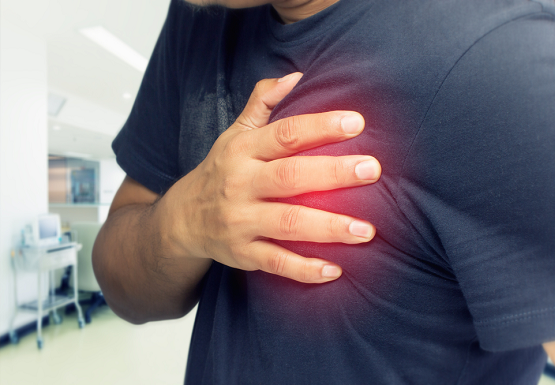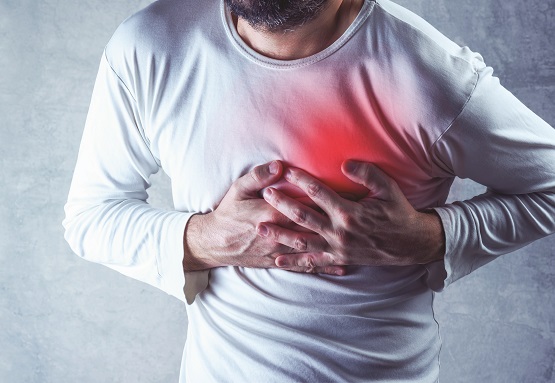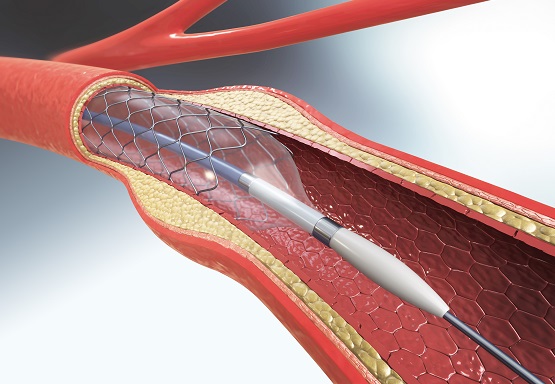Straight From the Heart

Heart disease is one of the top causes of adult mortality rates in Singapore. However, heart disease can be treated and is mostly preventable. We talk to Dr Tan Kok Soon, a cardiologist at Tan Kok Soon Heart Specialist Clinic at Mount Alvernia Hospital to provide some insight into these conditions.
HEART BLOCKAGE
Eugene (not his real name) is active in sports and was a Navy regular. Whenever he jogged, he experienced a tightness around his chest. The discomfort subsided as he eased into the run. He consulted Dr Tan Kok Soon at his clinic at Mount Alvernia Hospital. Dr Tan ordered a battery of tests including a stress test, ECG and treadmill sessions. The reports showed a progression in the narrowing of the arteries.
“Coronary artery disease is a common condition accounting for more deaths than any other condition after cancer in Singapore,” said Dr Tan.
“In the early stages, when the narrowings are still not severe enough to restrict blood flow significantly, the individual may have no symptoms. In the later stages, the narrowings may be severe enough to limit flow to the heart muscle and the individual may experience chest pain or tightness or a heart attack,” he went on to explain. As blockage happens over time, Dr Tan said that coronary heat disease usually occurs in middle aged and older individuals. Heart attacks though, rarely affect younger individuals.
“Often, we read in the newspapers of healthy young individuals ‘dropping’ dead suddenly from a cardiac arrest. The cardiac arrests – or sudden cessation of heart function – in these cases, are usually not a result of a heart attack but of other heart rhythm or heart muscle disease.”
BEATING THE BLOOD PRESSURE
Throughout the course of the day, one may be stressed at work or could be feeding anxious about a project outcome or worried about their kids at home. This could cause your normal blood pressure to vary. “A normal person’s blood pressure level can vary from second to second as it is highly influenced by emotion, food, exercise and so on,” said Dr Tan.
“However, if your blood pressure is persistently above 140/90mmHg, after a number of readings taken over a period of days or weeks, then you have hypertension,” said Dr Tan.
“It is a common misconception that hypertension causes headaches and heaviness behind the neck. With rare exceptions, hypertension in fact does not cause any symptoms and is totally ‘silent’. Therefore it is often called the silent killer. Hypertension kills by damaging the blood vessels, resulting in strokes, heart attacks and kidney failure.”
The real cause of hypertension remains largely unknown. “In a small number of individuals with hypertension, a cause to their problem can be found. This can be traced to a narrowing of the artery supplying the kidneys or a tumour secreting a hormone that raises the blood pressure. However, in the vast majority of patients with hypertension, the cause is unknown and could be a result of many factors including genetics, inappropriate diet and lifestyle,” he added.
TAKING A GOOD “HEART” LOOK
Not all diagnosis has to be invasive, according to Dr Tan. “An alternative to invasive procedure would be to do a CT base X ray test that does not involve having a carhwrwe insertion. This procedure accurately detects most blockages.”
However, he explained that the only definitive way of seeing if a patient has any blockages in the coronary artery is do a procedure known as a coronary angiogram. The procedure involves passing a catheter – a small (about 2mm in diameter), long hollow plastic tube – from the groin or wrist to the heart and taking pictures of the coronary arteries after injecting a contrast dye into the coronary arteries through the catheter.
You might think adding in less salt or soy sauce to your cooking would reduce your sodium intake, but that might not be the case. Hidden sodium is present in a lot of food, including canned food, processed meat and seemingly innocent ones like bread and cheese. The sodium in these foods potentially elevates blood pressure, increasing your risk of heart disease. To overcome this challenge, identify hidden sodium sources to reduce consumption, while increasing intake of potassium-rich food like bananas. Potassium balances out the negative effects of sodium, helping to lower blood pressure.
HEARTY LIVING
“You can avoid developing hypertension or if you have hypertension, to reduce the severity of it, by living a healthy lifestyle with weight control, avoiding excessive intake of salt or alcohol and regular exercise,” Dr Tan advised.
“However, patients with an unacceptable high blood pressure level would need antihypertensive medication to control their blood pressure in addition to altering lifestyle and diet.”
Many heat health advisories will include the cessation of smoking, treating hypertension and diabetes (if you have these) and reducing cholesterol levels. And a healthy heart diet include plenty of fruits, vegetables, nuts and fish, and less red meat process carbohydrates, salt, sugar, trans and saturated fats.
“Your doctor can estimate your risk having a heart atack and or a stroke in the next 5 to 10 years by looking at what ‘risk factors’ you have. These include your age and sex, your blood pressure and cholesterol levels, whether you are a smoker, have diabetes mellitus or hypertension. Being healthy reduces your chance of having a heart attack but obviously, does not eliminate the risk completely.”
Eugene is taking Dr Tan’s advice to heart. He is more aware of his physical limitations, pay close attention to his diet and stays disciplined with regular exercise.
Article contributed by Dr Tan Kok Soon, an accredited doctor of Mount Alvernia Hospital.
This article is taken from our My Alvernia Magazine Issue #24. Click here to read the issue on our website or on Magzter.



